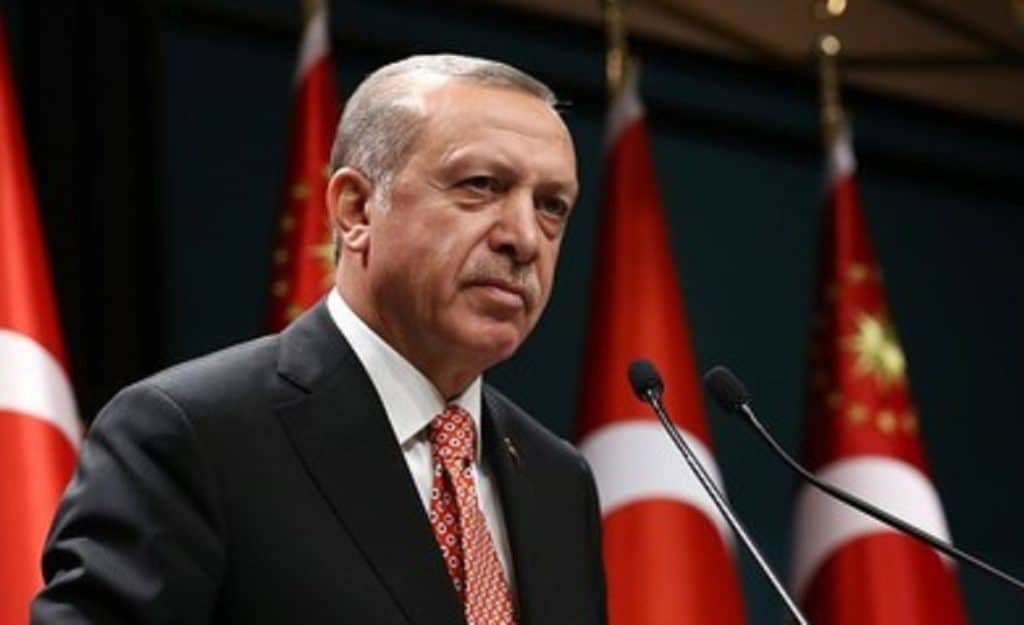By Slaviša Batko Milačić
In Athens on January 25, the Greek and French defense ministers witnessed the signature of the contract to buy 18 Rafale fighter aircraft after Greek parliamentarians approved the €2.5 billion ($3.04 billion) deal.

Nikos Panagiotopoulos and his French counterpart, Florence Parly, attended as Theodoros Lagios, general director of armaments and investments at the Greek Ministry of Defense, and Eric Trappier, president and CEO of Dassault Aviation, the aircraft manufacturer, signed the contract for 12 second-hand aircraft, which will be extracted from the inventory of the French Air Force, and six new ones. The contract includes the aircraft’s weapons. A second contract was signed for the logistical support of the aircraft.
The honeymoon period between Ankara and Athens during the late 1990s and 2000s was a natural outcome and requirement of USA and EU. However, with the weakening of US influence but also with the indecision of the EU, Ankara rejects the regional status quo and wants to expand its sphere of influence from the Caucasus to the MENA region.
The United States no longer views the European neighborhood, be it in the South or East, as holding high strategic value. The partial U.S. withdrawal from the region started under President Barack Obama, continued with Donald Trump and in unlikely that the administration of Joseph Biden will change that in any significiant way. It is this vacuum that Turkey is using to pursue its strategic interests and undermine peace and international law. It was this development that led to Turkey’s ambitions to take control of part of Greek territorial waters.
In this way, the interlocking set of maritime disputes between Turkey and Greece is strongly tied to their conflicting projections of national sovereignty. These maritime disputes have since morphed into geopolitical confrontations and power struggles between Turkey and a set of countries including Greece, Cyprus, Egypt, France, and the UAE.
The ideological backbone of Ankara’s actions in the Eastern Mediterranean is the “Blue Homeland” doctrine, according to which naval supremacy is necessary to thwart attempts by Greece and Cyprus to control the seas surrounding Turkey with the backing of the transatlantic alliance. At stake are Turkey’s right to maritime boundaries, its ownership of hydrocarbon resources and the status of the Turkish Republic of Northern Cyprus, which is recognized only by Turkey. The doctrine combines the expression of Ankara’s traditional security concerns about Northern Cyprus with an emphasis on access to resources – a reflection of Turkey’s overwhelming energy dependency (its 2019 energy imports totalled some US$41 billion).
Ankara’s confrontational foreign policy in the Eastern Mediterranean has contributed to turning the crisis into a regional problem. Cairo feels increasingly threatened by Ankara owing to its support of the Muslim Brotherhood, senior members of which are in exile in Istanbul; and the Turkish military intervention in Libya in early 2020 – which changed the balance of power against General Haftar, whom Cairo supports – only intensified that feeling. Egypt also sees Turkish actions in the Eastern Mediterranean as a challenge to its efforts to become a regional hub for energy trade and the distribution of liquefied natural gas.
Cairo is not alone in regarding Turkish actions in the Eastern Mediterranean as a security threat. The UAE and Turkey support opposing actors in Syria and Libya. At the same time, the UAE considers the close relations between Turkey and Qatar – the former gave the latter diplomatic and military support during the so-called Qatar crisis in 2017 – to pose a challenge to its regional aspirations. The Mediterranean is now a multi-stage theatre for demonstrating military might and engaging in geopolitical competition.
Turkey’s relations with Russia are also complex. For instance, in Black Sea region, Turkey has formed closer relations with Ukraine in order to weaken Russian influence. Turkey has decided to sell to Ukraine a set of Turkish-made Bayraktar Tactical Block 2 (TB2) unmanned aerial vehicles (UAVs) with improved capabilities. And also, as reported, in October 2020, Turkey and Ukraine signed a memorandum outlining their intentions to launch and implement joint projects to build warships, unmanned aerial vehicles and all types of turbines.
You don’t need to be a geopolitical expert to know that Ukraine is strengthening its army in order to establish control over the pro-Russian Donbas region by military means. That is why these activities of Turkey with Ukraine in Moscow are viewed with indignation. In addition to the above, differences have also been exemplified by Turkey and Russia’s respective policies on Syria, Libya, and Nagorno-Karabakh. In November 2020, Russia and Egypt conducted their first joint naval exercises in the Black Sea. The Bridge of Friendship-2020 naval drills brought the Egyptian Navy to the Black Sea for the first time. Along with expanding military cooperation with Cairo, Moscow also planned the event as a message to Turkey to curb its ambitions in the Middle East after Ankara’s involvement in conflicts in Syria and Libya.
Likewise, because Turkey and France support rival sides and pursue clashing interests in Libya, the conflict has significantly inflamed tensions between them, which in turn have aggravated the crisis in the eastern Mediterranean. France has become the most vocal European power supporting the Greek-Cypriot position, underscoring its position by conducting military drills with Greece and sending the Charles de Gaulle nuclear-powered aircraft carrier to the eastern Mediterranean. Turkey and France are also at odds with each other on a growing number of foreign policy topics, from Syria and Lebanon, to North and West Africa.
In this sense, the eastern Mediterranean has provided France with a more popular way to express its opposition to and discontent with Turkey’s foreign policy, which runs counter to France’s geopolitical aspirations in many different contexts. Thus, the geopolitical confrontation between Turkey, on the one side, and France, Egypt, Greece and the UAE on the other, has spilled over into the eastern Mediterranean and become another source of tension. French President Emmanuel Macron is determined to stop Turkey’s “imperial fantasies”.
Conclusion
In 2021, Ankara is left with no Middle Eastern friends, with the exception of Qatar and non-state Hamas. What is more, Turkey faces a number of adversaries in the Eastern Mediterranean, ranging from form France to Greece to Egypt. Overall, whether Erdogan can continue to play his game in the Eastern Mediterranean depends on the health of Turkey’s economy. Since 2018, the economy has shown signs of weakness, including currency crises, in 2019 recession and in 2020 due to COVID 19 the economy weakened significantly. If Turkey suffers an economic meltdown, it will be hard for him to maintain Ankara’s current stance in these areas. He will have to turn his attention to the country’s domestic troubles. Otherwise, Erdogan will probably continue to play an interventionist and dangerous role in the Eastern Mediterranean for the foreseeable future. However, an alliance against his expansionist policy has already been de facto formed.
Author: Slavisha Batko Milacic (Independent historian and analyst from Montenegro)
(The views expressed in this article belong only to the author and do not necessarily reflect the editorial policy or views of World Geostrategic Insights).







